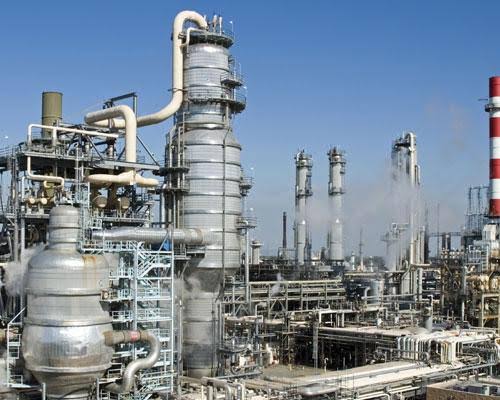Warri Refinery Resumes Operations at 60% Capacity

The long-awaited resumption of operations at the Warri Refining and Petrochemicals Company (WRPC) has been heralded as a significant milestone for Nigeria’s oil industry.
President Bola Tinubu lauded the achievement as a defining moment in 2024, reinforcing his administration’s commitment to revitalizing the nation’s energy sector.
Mele Kyari, Group CEO of NNPC Limited, announced that the 125,000 barrels-per-day refinery is now operating at 60% capacity, though rehabilitation efforts are ongoing.
“This plant is running. While it is not yet 100% complete, we are making steady progress,” Kyari stated during a facility tour. “Many doubt such achievements are possible in Nigeria, but this is proof that progress is real.”
President Tinubu expressed deep satisfaction with the reopening of the WRPC, describing it as a beacon of hope for Nigerians and a testament to his administration’s dedication to energy efficiency and security.
“The resumption of operations at the Warri Refinery demonstrates that our plans are on track. This is a proud moment for our nation,” Tinubu remarked, commending the efforts of the Mele Kyari-led NNPCL team for their dedication to restoring Nigeria’s status as a leading oil producer.
READ ALSO:
Employ sense of fairness, equity in distribution of public posts – Senator Allwell Onyesoh to National Assembly Service Commission
Coordinating Minister of Health Unveils NEMTC, Signs MoU with NPHCDA, NMEP to Enhance Healthcare for Nigerians
Speaker Abbas Congratulates Governor Uba Sani on His 54th Birthday
The WRPC is currently focused on producing and storing essential petroleum products, including Straight Run Kerosene (SRK), Automotive Gas Oil (AGO), and both heavy and light Naphtha.
This milestone follows the recent restart of the Port Harcourt Refinery and is part of a broader effort to revitalize Nigeria’s refining capacity. President Tinubu has directed the NNPCL to expedite repairs on the Kaduna Refinery and the second 150,000 barrels-per-day Port Harcourt facility to solidify Nigeria’s position as a global energy powerhouse.
With these developments, Nigeria is poised to reduce its dependence on imported petroleum products and achieve greater energy self-sufficiency.





